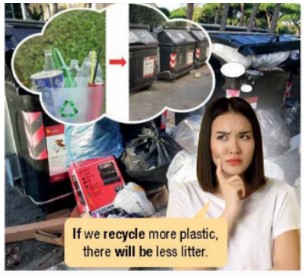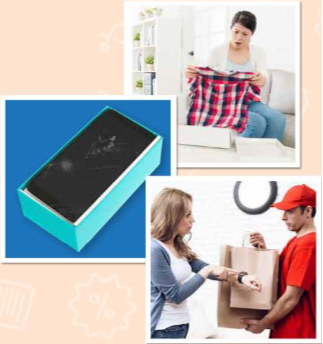Hãy nhập câu hỏi của bạn vào đây, nếu là tài khoản VIP, bạn sẽ được ưu tiên trả lời.

We ought not to hunt wild animals.
(Chúng ta không nên săn bắt động vật hoang dã.)
One of the things we should do is to avoid crowded places.
(Một trong những điều chúng ta nên làm là tránh những nơi đông người.)
I suggest that we should not waste water and electricity.
(Tôi đề nghị rằng chúng ta không nên lãng phí nước và điện.)
It will be better following walking paths and trails.
(Sẽ tốt hơn khi đi theo những con đường đi bộ và đường mòn.)

Our surrounding environment is so polluted that we should follow specific approaches to tackle this problem. To begin with, each of us should use water wisely. That can simply be the instant repair of leaky faucets and pipes because a dripping faucet can waste as much as 5 liters a month. Besides, using the shower instead of taking a bath can save up 50% of the water consumed. Plus, responsible disposal of waste should be put into practice in every household. To be more precise, organic trash and scrap metal are to be classified and discarded in different bins. Moreover, it is advisable to reduce our electricity consumption. By turning off the light when going out of the room or using energy-saving devices, we can save not only our money but our environment as well. To sum up, the concerted effort from each individual in saving the environment will yield the best results.

1. The store sent her the wrong color shirt. She should contact the store and request for a replacement.
(Cửa hàng đã gửi nhầm màu áo cho cô ấy. Cô ấy nên liên hệ với cửa hàng và yêu cầu thay thế.)
2. The phone has a broken screen after delivery. He/She should contact the seller and request for a replacement.
(Điện thoại bị vỡ màn hình sau khi giao hàng. Anh ấy/cô ấy nên liên hệ với người bán và yêu cầu thay thế.)
3. The shipment is later than expected. She should call the shipping company to complain about the problem.
(Hàng về muộn hơn dự kiến. Cô ấy nên gọi cho công ty vận chuyển để phàn nàn về vấn đề này.)

Day trip to discover Nha Trang & Yang Bay Waterfall (Chuyến đi trong ngày khám phá Nha Trang & Thác Yang Bay) |
Time to leave: 6.30 a.m. (Thời gian rời đi: 6:30 sáng) |
Trip will take: 5 / ten hours (Chuyến đi sẽ mất: 5 tiếng) |
Activities: (Các hoạt động:) |
- enjoy stunning views of Yang Bay Waterfall (thưởng ngoạn tầm nhìn tuyệt đẹp ra Thác Yang Bay) |
- have lunch at Memento Country Home (ăn trưa tại Memento Country Home) |
- visit Dien Khanh Citadel and Long Son Pagoda (thăm Thành cổ Diên Khánh và chùa Long Sơn) |
- stop at the Po Nagar Cham Towers and discover the intriguing story of the Chams (dừng chân tại Tháp Chàm Po Nagar và khám phá câu chuyện hấp dẫn của người Chăm) |
- experience local life as you stop at villages and markets (trải nghiệm cuộc sống địa phương khi bạn dừng chân tại các ngôi làng và chợ) |
Do not: (Đừng:) |
drop litter or catch fish in the waterfall (xả rác hoặc bắt cá ở thác) |



There are many things that we should or shouldn’t do to live green. We should plant more trees because they provide shade and fresh air. We shouldn’t leave our appliances on when not in use as this wastes electricity and creates dangerous situations.
(Có rất nhiều điều mà chúng ta nên làm hoặc không nên làm để sống xanh. Chúng ta nên trồng nhiều cây xanh hơn vì chúng cho bóng mát và không khí trong lành. Chúng ta không nên để các thiết bị của mình bật khi không sử dụng vì điều này gây lãng phí điện và gây ra các tình huống nguy hiểm.)